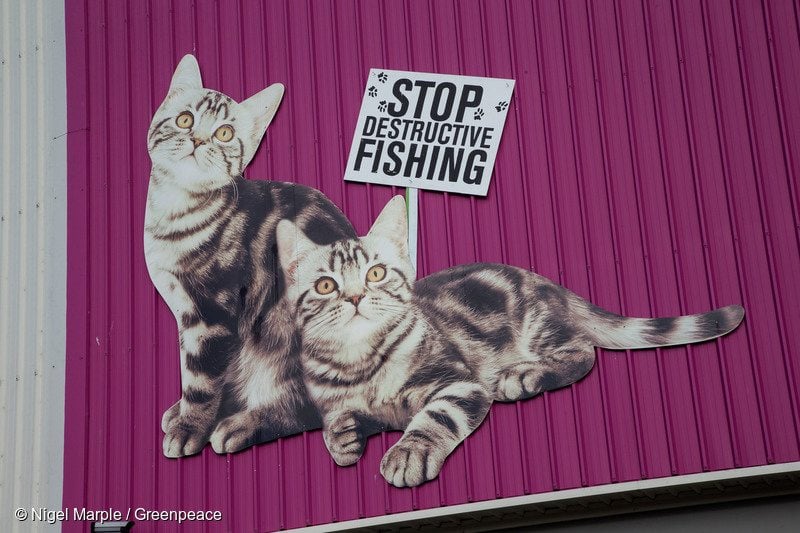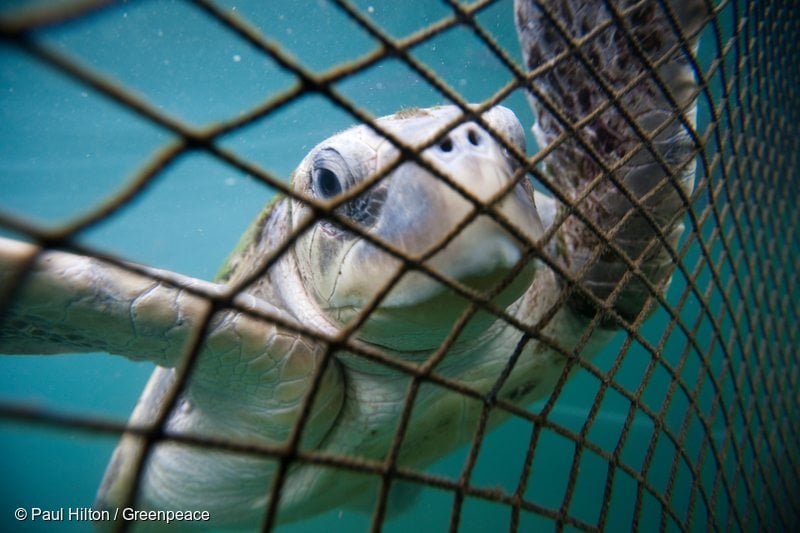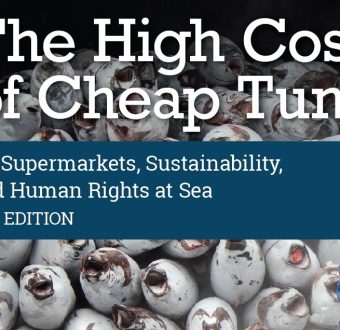Ceviche, ensalada de atún, caldo de camarones, pescado frito y pescado empanizado. If you grew up in a Latinx household like I did, you’ll probably recognize some of these favorite seafood dishes. With Cuaresma (Lent) around the corner, these dishes will likely be making special appearances every Wednesday and Friday over the forty days leading up to Easter.
¿Cuaresma verde?
Cuaresma encourages practitioners to make personal sacrifices in their daily habits that simplify their lives to make room for reflection and prayer in preparation for the Easter holiday. In recent years, some churches have begun calling on their members to make sacrifices that are good for the environment as well as their spiritual lives. Even el Papa Francisco himself has called for greater consideration and action on environmental issues in his encyclical on the environment.
This year, why not use Cuaresma as an opportunity to protect the oceans by reducing your personal impact with more sustainable and ethical seafood choices? We’re going beyond the mercury content in your tuna salad sandwich. The next-level questions we want you to ask are: 1) where does the tuna that goes into that tuna salad come from? and 2) was it sustainably and equitably sourced?
Taking the lid off seafood supply chains
The source of the seafood we eat may seem pretty straightforward: el océano. However, plucking fish out of the ocean at the industrial scale required to feed the human population’s appetite — not to mention the appetite of their cats and dogs — is more complex than you might think.
For one, the marine creatures people eat as seafood aren’t the only creatures entangled by industrial fishing gear. Destructive, irresponsible fishing methods often kills vulnerable marine life as incidental by-catch. Sea turtles, sharks, and rays are becoming the misfortunate casualties of people’s favorite mariscos.
Para colmo de males, human trafficking and forced labor have been revealed as additional egregious costs of cheap seafood. Human rights organizations, Greenpeace investigations, and award-winning investigative journalism have uncovered incidences of human and labor rights abuse in major seafood supply chains — as close to home as Hawaii.
Trabajadores inmigrantes from developing countries are most susceptible to becoming victims of human trafficking and forced labor in fisheries because of their unprotected status in many countries. They can become trapped for months and even years on fishing vessels that travel further away from shore and for longer than before in search of dwindling fish stocks.

The Indonesian Migrant Workers Union (SBMI) and Greenpeace Indonesia hold a peaceful protest to urge improvement for placement policies and protection of migrant worker crews from Indonesia working on foreign fishing vessels outside the country.
Consumer Power!
Does learning and thinking about these issues pull you into you despair like Thalia in Marimar?
The problems plaguing the oceans may seem distant and overwhelming, but we all have a part to play in protecting the oceans.
As consumers, we have the power of el voto del dólar. We can eat less seafood and choose sustainable and ethical products over more questionable ones at the grocery store. A good resource to help guide your purchasing is Greenpeace’s canned tuna shopping guide. We can also demand that our favorite tuna brands and supermarket chains clean up their sourcing policies by calling on them to raise their standards and do more to make sure the oceans are adequately protected.
This Cuaresma, don’t forget that every seafood meal is an opportunity to take action for the oceans.






